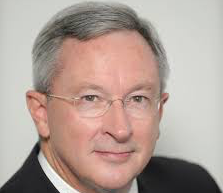NSW health minister, Brad Hazzard, said the states and commonwealth must collaborate to ensure the sustainability of the private health sector.
Speaking to The Australian Financial Review, Mr Hazzard focussed on the cost of prostheses and medical specialist fees, but not the impact of states forcing patients to be treated privately in public hospitals.
"There are a lot of costs that are currently charged, for example in surgery, by both the medical practitioner and by the medical device companies that are excessive. I think we need to really drive the competitive element amongst those who provide health services," he said.
Prostheses have already been the subject of some reforms, with government announcing reductions of $86 million over five years earlier this year, and making changes to the Prostheses List Advisory Committee.
The entire sector is subject to an ongoing Senate inquiry and ministerial advisory council.
Mr Hazzard did not discuss the impact of states using public hospitals to generate funds from privately insured patients and its contribution to putting upward pressure on premiums.
A recent discussion paper released by the Department of Health showed the percentage of public hospital separations funded by private health insurance increased nationally from 10.5 per cent in 2010-11 to 14.1 per cent in 2014-15.
New South Wales led the way nationally, with private health insurers covering over one-in-five public hospital separations in 2014-15.
According to the minister, who said the public and private systems need to co-exist and be complementary, "We tend to be accepting of who is the best surgeon and what is the best outcome in terms of devices, without going to the second stage and asking about the cost.
"There is some financial imperative for us to ask that question and unless we are going to kill the golden goose, there has to be a collaborative effort between federal and state governments in Australia."
"Keeping costs downs means keeping premiums down – and that's what we want to achieve," he said.
